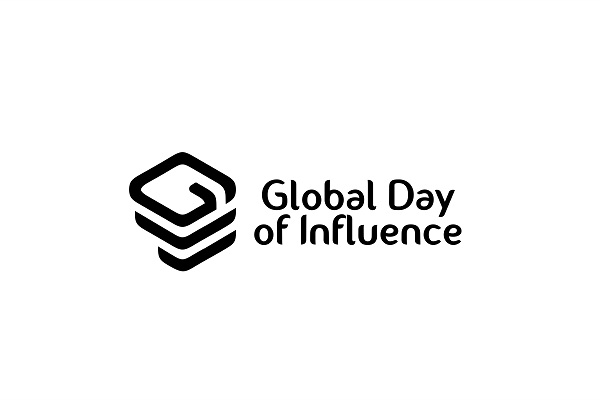News
Why November 22nd Should Be Recognized As Global Day of Influence

November 22, 2020 will mark the inaugural edition of the Global Day of Influence – a day to discuss, interrogate and celebrate the concept, principles, and impact of influence in today’s world.
Ayeni Adekunle, founder, Black House Media (BHM), speaking on the Global Day Of Influence, said “We can’t compel or force people, companies and governments to be and do better.
“But as we enter the age of influence, there’s no better time to begin discussing and activating the resources that will drive us towards the kind of leadership we so badly need.
“The kind of direction we need for our lives, for our families, for our nations and for the world.”
“Having a day like GDI became necessary having realized the potential for good or otherwise in an age where truth is at risk, trust is endangered and the most vulnerable amongst us, helpless,” Ayeni added.
Following a series of events which has rocked the world in recent times, it has become imperative for all stakeholders to evaluate the power and potential of negative influence.
Some of recent impacts of influence and its adverse effects include the up rise in suicide bombings over the last decade.
According to the U.S National Consortium for the Study of Terrorism, suicide bombing increased from an avergage of 4 per year in 2001, to over 400 per year by 2011, due to the precedent set by the 9/11 bombing.
A more recent example of the power of misinformation and influence is the 2016 U.S election, as many investigations are still being carried out to determine the impact of false narratives in swaying the outcome.
According to Washington Post’s review of a study by Ohio State University researchers, fabricated stories favoring Donald Trump were shared a total of 30 million times, nearly quadrupling the number of pro-Hillary Clinton shares leading up to the election.
The study also shows that the most widely circulated stories were shared by well meaning Americans who believed these false narratives and became advocates for the message carried in these stories.
The Global Day of Influence has been put together to recognise the responsibility of those with influence, as well as to highlight and disincentivize the role played by impressionable audiences in promoting a circle of false narrative, skewed sentiments and negative influence.
“We all need to answer a call of duty, to help people and companies and governments communicate more honestly and responsibly,” says Ayeni.
According to the Statista, the average daily digital interactions per person stands at about 1,400, while in-person interactions is estimated to be around 25 for middle aged adults.
This means that humans are interacting more than we have in our entire history. The speed in which information travels is faster, and more impactful, hence measures must be put in place to ensure the right narratives are being spread.
The selected date for Global Day of Influence pays homage to the great Austrian-American public relations pioneer Edward Bernays who was born on November 22, 1891. Bernays is widely regarded as “the father of public relations”
News
Cloud Energy Commissions 50kW Solar Mini-Grid in Plateau State, Sparks Rural Revival

Cloud Energy Photoelectric Limited, in furtherance of the strategic partnership with the Rural Electrification Agency, REA, has commissioned another Solar Mini Grid plant. This time a 50 KWhz Solar Mini-Grid plant at Namu, Plateau State.

The occasion was festive, with fulfilment that you could touch, as the 50 kilowatt solar-mini-grid restored light to Namu, community in Qua’an Pan LGA, after 20 years without power.
The immediate impact is the return of Namu to economic growth – businesses return to productivity, the local economies improve with the creation of many jobs.
The Managing Director of Cloud Energy, Engr. Theophilus Nweke, in his address explained that his company committed financial and human resources to make this 50 kilowatt solar mini-grid a reality because of the urgent need to unlock the rich potentials of the rural Namu community.
He revealed that the Namu community is home to fifty rice mills, all to be powered by the solar-mini-grid plant.
Engr. Nweke observed that there was an urgent need to scale up the Namu solar mini-grid to two megawatts in order to enable it play a more significant role in the industrial development of the Qua’an Pan rural communities and Plateau State at large.
Addressing the leaders of the community, the renewable energy boss, observed that he heard a few complaints that the power was yet to reach them.
He opined that the long wait for power has stopped with the commissioning of the 50 kilowatt solar-mini-grid, which he described as the seed for a new era of reliable and steady power.
In his contribution, the Managing Director, Rural Electrification Agency, Abubakar Abba Aliyu explained that the African mini-grid program is a flagship initiative designed to support access to clean energy and promoting large scale investment in renewable energy in Africa.
It focuses on cost reduction levers. He further explained that the project, here in Qua’an Pan, is not just a power installation. It is a symbol of transformation that will light up homes, power our businesses and create new opportunities for people and farms in the community.
The future of the renewable sector in Plateau State looked full of hope as the State Governor, Caleb Manasseh Mutfwang, assured all that renewable energy would receive priority attention now and in the future in his administration.
Cloud Energy Solar thus reaffirms the company’s capacity to unleash the potentials of rural communities. The Namu 50 Kilowatt Solar-mini-grid is another testimony of Cloud Energy’s unwavering commitment to catalyzing rural development through the solar-mini-grid technology.
In Namu, as in Ita Awoke community in Ebonyi State, where Cloud Energy installed a 100 Kilowatts solar-mini-grid, Children are fetching clean portable water from the public tap, the women are grinding beans, corn and other grains 24/7, and the rice mills are loading trucks of milled rice. In Namu, Cloud Energy Solar has energized another rural community.
News
Nigerian Man Sentenced in U.S. for Sextortion Scheme Leading to Death of American Student

A 27-year-old Nigerian national, Imoleayo Samuel Aina, also known as “Alice Dave,” has been sentenced to six years in prison by a U.S. federal court for his role in a sextortion scheme that led to the death of a 20-year-old American student.

The sentence, handed down by United States District Judge Joel H. Slomsky on Oct. 28, includes 72 months in prison, five years of supervised release, and restitution of $3,250.
United States Attorney David Metcalf announced the sentencing in a press release issued Saturday, Nov. 15, following a delay caused by the recent federal government shutdown.
The case stems from a January 2023 incident in which Jack Sullivan, a sophomore at Kutztown University in Pennsylvania, received flirtatious messages from Aina via Instagram. The exchange escalated to intimate photos on Snapchat, followed by threats demanding money.
Sullivan paid approximately $2,800, but Aina refused to delete the images. Less than 24 hours later, Sullivan was struck and killed by a train near the Jenkintown SEPTA station.
Aina was arrested in Nigeria alongside co-defendant Samuel Olasunkanmi Abiodun on July 31, 2024, and extradited to the United States with assistance from Nigerian authorities and the FBI. A third Nigerian, Afeez Olatunji Adewale, remains in Nigeria pending extradition.
Aina pleaded guilty in May 2025 to multiple charges including cyberstalking, extortion, money laundering conspiracy, and wire fraud. Abiodun, 26, was sentenced to five years in prison in June after pleading guilty to related charges.
U.S. Attorney Metcalf described Aina as “the driving force behind this sextortion scheme,” adding that the Department of Justice is committed to prosecuting overseas scammers who target American citizens.
“This case is a powerful reminder of the profound harm sextortion inflicts on young people and their families,” said Wayne A. Jacobs, Special Agent in Charge of the FBI’s Philadelphia Field Office.
The case was investigated by the FBI and Abington Township Police Department, and prosecuted by Assistant U.S. Attorney Patrick Brown.
The Justice Department acknowledged the critical support of Nigeria’s Attorney General, the Federal Ministry of Justice’s International Criminal Justice Cooperation Department, and the Economic and Financial Crimes Commission in facilitating the extraditions.
News
Firm Urges Organizations to Check Protection of their Websites Amid Search Engine Optimisation Attack Schemes

Kaspersky, a global cybersecurity and digital privacy company, warns of a prominent threat to website owners, including small and medium-sized businesses: search engine optimisation (SEO) spam and hidden links embedded on legitimate websites.

SEO is the practice of improving a website’s visibility in search engine results through ethical strategies like keyword optimisation, high-quality content creation and building authoritative backlinks.
However, malicious actors are exploiting this process by injecting hidden links on reputable sites to manipulate search rankings, often linking to illicit content such as pornography or gambling, jeopardising businesses’ online presence and reputation.
The consequences for affected websites are severe, including plummeting search rankings, eroded visitor trust and potential legal liability if linked to illegal content. The attackers’ goals may be to discredit certain websites or to channel traffic to certain portals.
Attackers embed hidden links on websites by exploiting compromised administrator accounts, outdated website content management system extensions (which were initially designed to enhance the functionality and features) or server weaknesses, allowing them to directly edit the site’s HTML code or inject malicious scripts. Security solutions may categorise such websites as prohibited and block traffic to them.
Popular blogs and forums are among the targets due to their high traffic, making them valuable for boosting attacker-controlled sites. Websites with less traffic are also vulnerable, as attackers exploit weaker security to inject these links, which can go unnoticed until traffic drops or search engines issue penalties.
“Kaspersky’s categorisation engine constantly detects hidden links pointing to pornographic and gambling sites. SEO spam is a serious threat that can silently undermine a company’s digital credibility and financial stability. These hidden links not only exploit a website’s authority to boost illicit sites but can also trigger harsh penalties from search engines and security solutions, devastating businesses that rely on online visibility.
Proactive defence of the website admin panel and content management system is critical to staying ahead of these evolving attacks,” said Anna Larkina, Web Content and Privacy Analysis Expert at Kaspersky.
Kaspersky recommends regular audits of website source code for suspicious elements, using trusted tools such as Google Search Console or OpenLinkProfiler. Businesses should keep CMS platforms and plugins updated, enforce strong passwords with two-factor authentication and restrict admin panel access by IP address. Deploying web application firewalls and maintaining regular backups are also essential to prevent and recover from unauthorised changes.

 Telecom1 day ago
Telecom1 day agoT2 Condemns Misrepresentation of Industry Facts, the Spread of Disinformation Regarding IHS and Network Operations

 General News1 day ago
General News1 day agoIHS Nigeria, FCT-HSES Begin Distribution of Smart Cooking Gas as Part of “Breathe Clean Air, Abuja” Campaign

 News1 day ago
News1 day agoNigerian Man Sentenced in U.S. for Sextortion Scheme Leading to Death of American Student

 Telecom1 day ago
Telecom1 day agoMTN Nigeria, WWF/NCF and UNDP Nigeria Announce the Top 10 Finalists of 2025 Nigeria PachiPanda Challenge

 Telecom1 day ago
Telecom1 day agoT2 Debunks Viral Posts on IHS Towers, Affirms Network Stability

 General News1 day ago
General News1 day agoPrince Edward Hosts Global Youth Forum in Lagos, Champions Expansion of Duke of Edinburgh’s Award

 Telecom1 day ago
Telecom1 day agoTelecoms Industry Cuts 383 Jobs in One Year

 E-Financial1 day ago
E-Financial1 day agoSERAP Demands Answers over Missing N3 Trillion in CBN Account



























